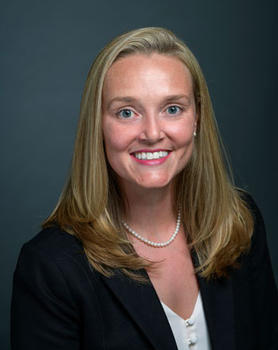With the rise of online learning, cheating has become easier than ever. And perhaps more prevalent as well, suggests one Mason accounting professor.
In the changing world of education, online academic resources such as Chegg.com have become the go-to websites for help with schoolwork. These websites are typically used to help students understand how to solve problems if they are stuck on a question, or to check their work to see if they are on the right path. However, these platforms can also be used to find answers to test questions, breaking the code of academic integrity. Surprisingly, many professors are not aware of how these websites can be misused due to a lack of familiarity with the rapidly changing technology.

Jenelle Conaway, an accounting professor at the Donald G. Costello College of Business at George Mason University, recently published a paper in Issues in Accounting Education (co-authored by Taylor Wiesen of the University of Southern California) finding that accounting students were using Chegg to look up answers during online exams. The researchers took advantage of the fact that Chegg provided timestamps of submission and viewing of exam questions if requested by the professor. Drawing upon evidence from an intermediate accounting course, their study shows that, in the spring 2020 semester, nearly 13 percent of students were identified as using Chegg while taking final exams. The number of cheating students increased in the summer 2020 semester, where nearly a quarter of the class used Chegg during an exam.
For their part, professors may be aware that these academic resource websites exist, but fail to grasp the scale of the problem. “Over time, if you use a textbook, there are going to be answers to the textbook and test bank questions somewhere online. And I think most faculty understand that,” Conaway explains. “But none of the faculty that we spoke with were aware that a student can submit an instructor-created question and get an answer in real-time during a live exam.”
Conaway comments that these startling stats very likely don’t tell the whole story. Chegg users are able to look up a test question by searching just a phrase or a sentence, or even taking a picture of the question. “Chegg has a very large collection of academic material,” Conaway says. “If students do not find their exact test question, they can usually find something very similar. We didn't look into that kind of website use at all because it is very challenging to identify."
"None of the faculty that we spoke with were aware that a student can submit an instructor-created question and get an answer in real-time during a live exam."
Conaway’s research highlights Chegg and other academic resource websites as a significant challenge exacerbated by the adoption of online learning and assessments following the COVID-19 pandemic. Professors had to find ways to adapt to these changes; however, student monitoring has been difficult since switching to an online format. Conaway explains, “We just don't have the same level of monitoring online as we do in-person. It is really challenging for faculty members who are in a position where they have to deliver their course, or their exams, or their graded assignments online.”
There are technological tools to help safeguard academic integrity during online exams. For example, the application LockDown Browser is designed to limit online activity—screenshotting, copying, or browsing external websites—during exams. While these applications may not be foolproof, they lessen the chance of academic dishonesty during online test taking.
Conaway explains that, in addition to using online monitoring methods, creating new exam questions each semester is an effective way to prevent students from easily finding the test answers on Chegg or other websites. “At a minimum, if you write brand new questions every time, then you know the question and answer do not already exist on one of these websites.”
Professors must find a solution that best works for their class. Conaway emphasizes that “each faculty member has to find the right balance of time, effort, and safeguards to feel confident and comfortable with the quality of education that they are delivering.”
Even before the pandemic, about one-third of higher-ed courses in the U.S. were delivered remotely. For 2022, despite the reduced threat of Covid, online courses represented 46 percent of the total. Conaway emphasizes the possible long-term impact of such cheating, should it become normalized. Getting good grades through academic dishonesty might put students in positions they have not earned and are not prepared for. Conaway says, “It can be challenging for students to recognize that even seemingly minor instances of academic dishonesty can add up in the grand scheme of their education. Future employers expect recent graduates to have a certain level of competence, and accounting is a profession that places a strong emphasis on ethics and integrity.”
- January 7, 2026
- December 15, 2025
- December 4, 2025
- December 1, 2025
- November 7, 2025
